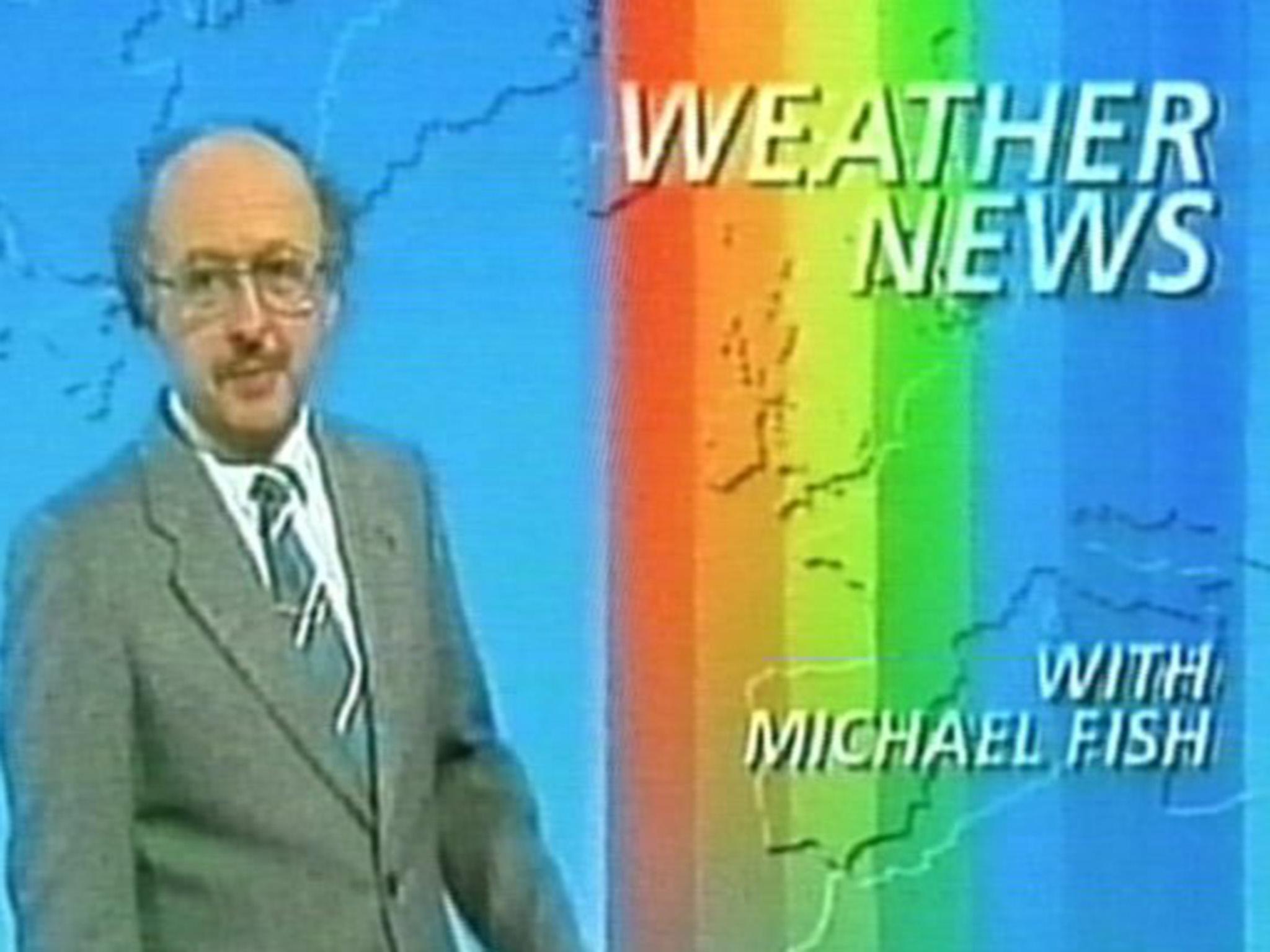Hurricane Ophelia: Weatherman Michael Fish 'proud' of legendary gaffe on 30th anniversary of Great Storm
Meteorologist famously dismissed possibility of cyclone striking Britain in 1987 - before one duly did and caused £1 billion of damage
Your support helps us to tell the story
From reproductive rights to climate change to Big Tech, The Independent is on the ground when the story is developing. Whether it's investigating the financials of Elon Musk's pro-Trump PAC or producing our latest documentary, 'The A Word', which shines a light on the American women fighting for reproductive rights, we know how important it is to parse out the facts from the messaging.
At such a critical moment in US history, we need reporters on the ground. Your donation allows us to keep sending journalists to speak to both sides of the story.
The Independent is trusted by Americans across the entire political spectrum. And unlike many other quality news outlets, we choose not to lock Americans out of our reporting and analysis with paywalls. We believe quality journalism should be available to everyone, paid for by those who can afford it.
Your support makes all the difference.Weatherman Michael Fish, who in 1987 failed to predict one of the UK's most catastrophic cyclones, has said he would love to have a storm named after him.
The retired BBC forecaster famously told viewers not to worry hours before one of Britain's worst weather events in living memory, which left 18 people dead and caused around £1 billion of damage.
Speaking ahead of the 30th anniversary of the Great Storm of 1987, the most destructive since 1703, he said: “I would love to have a storm named after me.”

Shortly before hurricane-force winds battered the south of England in 1987, Fish told viewers: “Earlier on today apparently a lady rang the BBC and said she heard that there was a hurricane on the way.
“Well, don't worry if you're watching, there isn't.”
The incident has achieved such notoriety that it featured in the opening ceremony of the London 2012 Olympic Games.
Fish, 73, of West London, has since said that the woman caller never existed and that it is one of a number of “myths” surrounding the incident.
“It's a myth that we didn't know it was coming, that there was a no mention of high winds, that I was the only one that got it wrong, the woman that rang the BBC - there wasn't a woman at all actually - and that it was a hurricane,” he said.
“It (the woman caller) was one of those things that slipped out at the time but unfortunately there was no truth in it.”
He said his “unfortunate remark” led to him being blamed for missing the cyclone but that he now views the incident in a positive way.
“At the time it was pretty horrendous and the press were relentless but as time went on it turned from a disaster to something that was quite something to be proud of.
“And when I saw my clip being used on the opening ceremony of the Olympic Games then I thought 'I've come, that's it - I'm now world famous with 18 billion people watching my forecast'.”
Despite Fish's denial of the caller's existence, Anita Hart, a woman from north west London, has always maintained that she did indeed call the BBC, after her son, Gaon, a student of meteorology working with satellite data, predicted the storm.
Fish, who will feature in a BBC documentary to mark the 30th anniversary of the storm, said “you can never be certain” with the weather but that advances in technology make it unlikely that such a serious cyclone would be missed in the future.
“I don't think we would miss a storm like this if it happened again,” he added.
He said that weather warning systems have also improved drastically since the 1980s, including the Met Office scheme of naming serious storms.
“There was a warning system at the time but it was next to useless and there's now a very efficient and very good and very clear system of warnings,” he added.
“Also working well so that the public and press get more of a handle on these things is the fact that we name the really vicious storms, which makes them easier to follow.
“They're not going to name one Michael which is unfortunate - I would love to have a storm named after me but it would be a particularly bad season if they got to M in the alphabet.”
The list of storm monikers is drawn up each year in alphabetical order, alternating between male and female names, meaning the likelihood of getting to “M” is quite low.
PA

Join our commenting forum
Join thought-provoking conversations, follow other Independent readers and see their replies
Comments